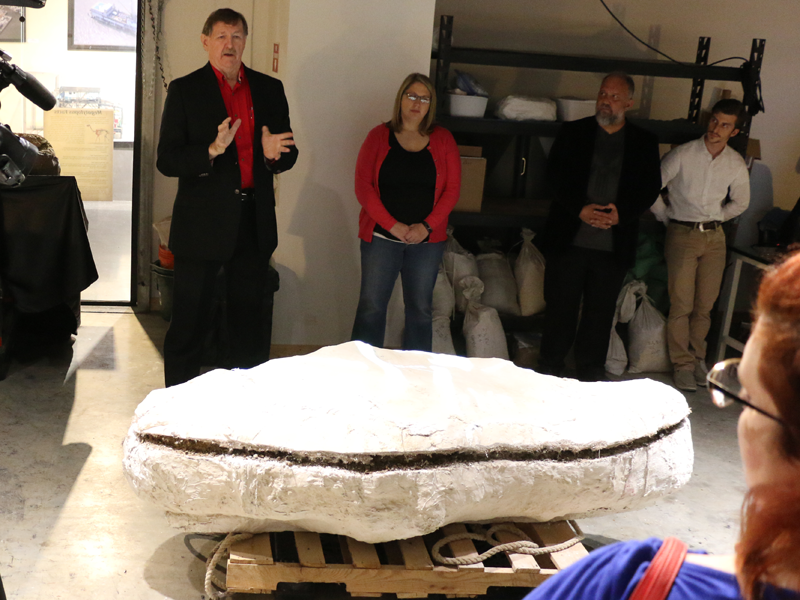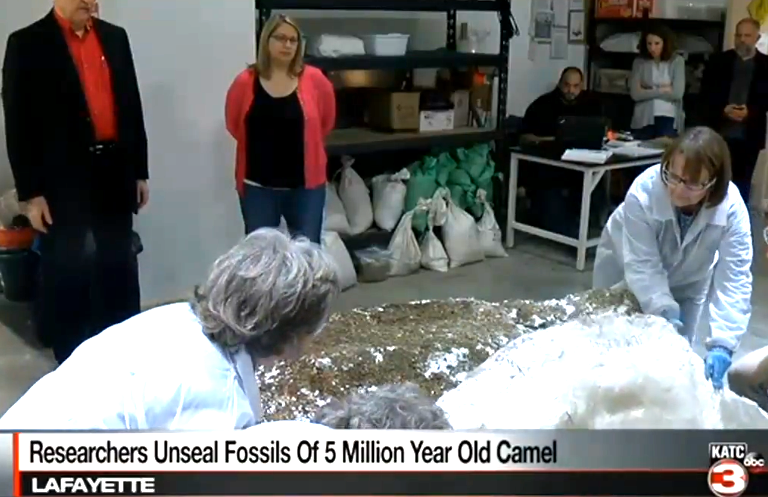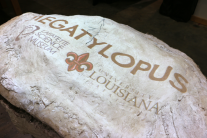Unsealing Megatylopus
Fri, 02/09/2018 - 3:36pmOn February 1, 2018 the Lafayette Science Museum and the University of Louisiana at Lafayette's School of Geosciences, Geology Museum unsealed a cast containing five million-year-old giant camel fossils. The fossilized skeleton of Megatylopus is an extremely rare paleontological find. With the addition of these fossils, Lafayette Science Museum now holds the most complete Megatylopus skeleton discovered to date.
Dr. James Martin, research professor and curator of paleontology, discovered these fossils during a 2016 expedition. They were encased in a plaster jacket to protect them during transport from Oregon back the geology preparation laboratory at Lafayette Science Museum.
In the coming months, the fossilized bones of the Megatylopus skeleton will be further excavated from the surrounding matrix and prepared in the lab. During this process, museum visitors will be able to see the progress as the fossils are removed and exhibited part of the museum's collection.
Additionally, fossilized bones of the skeleton that have already been prepared are on exhibit along with illustrations of Megatylopus indicating bones excavated and prepared during previous expeditions.
Once the collected bones have been prepared, museum staff in collaboration with the UL Geology team will be able to create a complete replica of Megatylopus for the first time. In order to complete the skeleton, the team will use 3D printing technology to fill in bones that were not found. This will give scientists and museum visitors the most accurate picture of this species to date.
The Lafayette Science Museum is a regional science museum serving families, schools, and visitors. By applying the latest technology to interactive experiences and immersive education we strive to promote interest and inspire careers in science, technology, engineering, and math.



